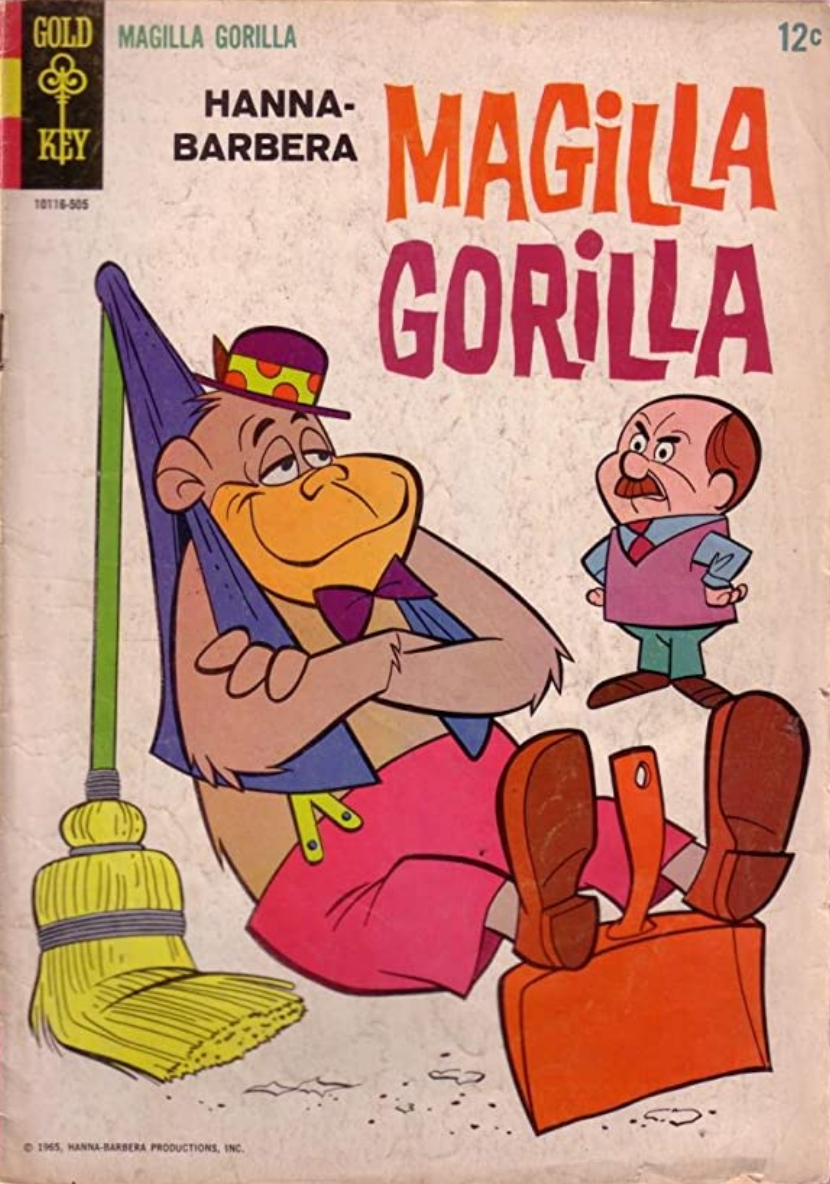There have been some issues lately that seems to get everyone’s drawers in a knot, above and beyond politics. For photographers it’s court cases that generate headlines, but don’t really tell the whole story. In some court cases the story changes 180 degrees and while the first iteration burns up social media sites, the second corrected story goes unnoticed. Or people don’t look deep enough, past the headlines and past stories by writers that really don’t know the whole story, or as we say in NY, the whole magillah. Which by the way is no relation to the gorilla in the cartoon, Magilla Gorilla .
 For those not familiar with the term, the entire magillah refers to the entirety of something. It’s derived from Yiddish and is related to five books of scripture that are very long and involved stories. They are read during certain Jewish holidays and the one usually referenced is the Book of Ester which is read during Purim. So before this post becomes another megillah, here’s our story regarding some recent cases involving Instagram.
For those not familiar with the term, the entire magillah refers to the entirety of something. It’s derived from Yiddish and is related to five books of scripture that are very long and involved stories. They are read during certain Jewish holidays and the one usually referenced is the Book of Ester which is read during Purim. So before this post becomes another megillah, here’s our story regarding some recent cases involving Instagram.
First a short one. A while back there was a headline, we wrote about regarding a judge ruling on a case that basically said taking an image from the Internet was fair use. Oh, the ruckus that cased. The two of us went deeper into that story and wrote a blog piece titled “Images On The Internet Now “Fair Use”? – It Ain’t Necessarily So”. We read and explained the entire magillah, meaning the actual court papers themselves. A lot of facts, never discussed past the headlines, came out in the court papers. One the judge made a point of saying he could only rule on what is presented before him. In court, if an argument isn’t presented, it’s considered abandoned. So the judge in legalese was saying the plaintiff’s lawyer didn’t present, let’s say, a complete argument. We are fairly sure the judge knew his ruling was flawed, but his hands were tied by a lawyer’s case as it was presented. As we mused in our article, the case was reversed on appeal.
Another fact that came out that no one talked about initially was that the case was backed by Pixsy. That also raised the eyes of the judge for several reasons we point out in our previous blog piece.
Which brings us to what we think is another case that burned up the photo social media and blogsphere. That’s the “We found it on Instagram and we now have a sublicense and can use it in our website”. The Sinclair v. Ziff Davis/Mashable.com case. That’s a bit of a pretzel of a case. At first the court, the Southern District of NY, dismissed the case, saying Instagram’s terms of service created a sublicense. Judge Kimba Woods said in her ruling “This Court cannot release her from the agreement she made.” Boom, the online bonfires started.
But wait…there’s more.
In another case soon after, McGucken v. Newsweek LLC, in the same court but a different judge. That case involved the same issue, a third party using an image they found on Instagram, embedding it on their site, and claiming a sublicense. No go this time. Instagram even chimed in with a statement, stating that while their terms of service gives Instagram a broad license, they did not or would not sub-license a photograph posted on their site. And the judge agreed that you can’t imply or infer a sub license. It has to be done in writing and be explicit.
So that should result in a huge exhale from photographers on the Interweb. Great news, but the redemption doesn’t burn up the Internet as much as the alarming headlines about completely losing control of your image when you post on Instagram.
As a result of McGucken, Judge Woods reversed her decision in the Sinclair case and reopened it to look at it again. Unfortunately for Sinclair, she still lost as she sued Ziff Davis, which acquired Mashable. Mashable was the company using her image. Without getting into the legal technical weeds, Sinclair’s case was tossed because the judge ruled Ziff Davis wasn’t liable for Mashable’s action.
The good news is that when you post on Instagram, a third company can’t take it and embedding it without your permission. And please remember, this works both ways – you are always safe by not copying anything on Instagram not created by you without a signed written license from the copyright author.
So now you have the entire magillah of this 500-pound gorilla of a ruling from both cases.
Our final note: While this is all great, we still recommend caution when posting photos on any social media and always have at least a small discreet watermark on the image. Ed’s layer position is to never post anything on the Internet and Jack’s photographer position is to show all your work to a wide audience. The real world, practical path we believe lies in the middle. As the tag line in one of our favorite old school cop shows always said, “Let’s be care full out there.”



#1 by Captain TM on September 2, 2020 - 8:20 pm
“Talkin’ till we’re blue in the face.” That’s one way for creatives to remember (identify) Ed & Jack, their IP blogs, and copyright law book authorships vs. competing IP advocates.
How about registering that TM tagline with the USPTO?
It’s a good move for creatives and others to protect/register their copyrights, trademarks, and other IP business assets.